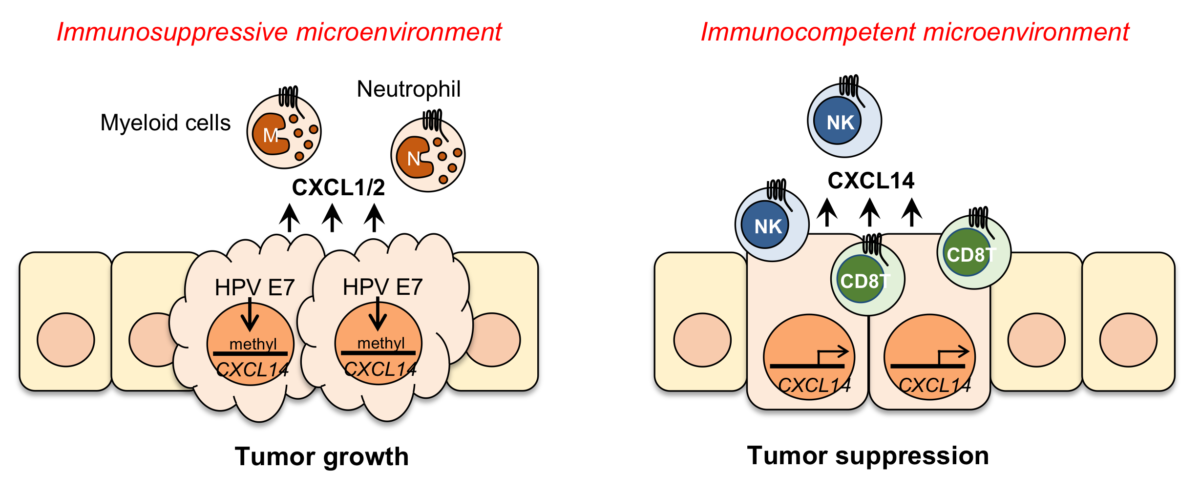

To establish persistent HPV infections, it is necessary for the viral genome to enter into the nucleus and establish its genome as a nuclear plasmid for long-term replication. Using our HiP virus production technology and high throughput screens, we have discovered that HPV infection is regulated by a variety of host factors/mechanisms including host cell mitosis, autophagy, and interferon-inducible proteins. We have recently shown that the interferon-inducible cytidine deaminase APOBEC3A functions as a restriction factor of HPV infection. Ironically, however, the HPV oncoprotein E7 significantly increases the level of APOBEC3A by inhibiting cullin-dependent protein degradation. HPV-positive CxCa and HNC were recently shown to harbor significant amounts of APOBEC3A mutation signatures. Thus, our findings raise the intriguing possibility that the induction of this host restriction factor by HPV may also trigger APOBEC3A-induced cancer mutagenesis. We are currently 1) investigating the mechanisms by which APOBEC3A restricts HPV infection and 2) determining whether APOBEC3A upregulation in HPV-positive cells facilitates somatic mutagenesis for cancer progression.
Along with analyzing human patient specimens, we have established combined approaches with a novel HPV production system, in vitro primary/normal keratinocyte culture systems, and in vivo mouse models that recapitulate HPV infection and cancer development. Our research group is uniquely positioned to carry out basic and translational research, collaborating with other scientists and clinicians in virology, immunology, oncology, pathology, surgery, and bioinformatics.